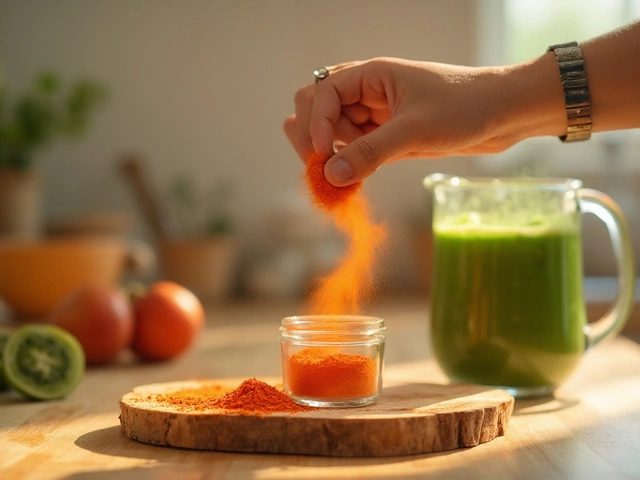Onion Supplements: What They Are and Why You Might Want One
Onion supplements take the good stuff from onions and pack it into a pill, powder, or capsule. People choose them because they want the same antioxidant and anti‑inflammatory punch you get from cooking with onions, but without the smell or tears.
What Makes an Onion Supplement
Most products use dried onion powder, onion extract, or a standardized quercetin blend. Quercetin is the main flavonoid in onions that’s linked to heart health and immune support. Some formulas also add selenium, sulfur compounds, or vitamin C to boost the mix.
When you read the label, look for a clear amount of quercetin (usually 50‑100 mg per serving) and a note that the product is “standardized” for consistency. That means each batch should deliver the same active dose.
How Onion Supplements May Help You
Studies show quercetin can lower blood pressure, reduce LDL cholesterol, and calm inflammation. If you struggle with seasonal allergies, the antihistamine‑like effect of quercetin might ease sneezing and watery eyes.
Beyond heart and allergy relief, onion‑derived compounds may support gut health by promoting good bacteria and protecting the lining of the stomach. Athletes sometimes use them for quicker recovery after intense workouts because they help fight oxidative stress.
Remember, supplements aren’t a magic cure. They work best when paired with a balanced diet, regular exercise, and enough sleep.
Choosing the Right Form and Dosage
If you dislike swallowing pills, powdered onion can be mixed into smoothies, oatmeal, or juice. Capsules are convenient for travel, and liquid extracts dissolve quickly in water.
Typical dosages range from 500 mg to 1,000 mg of onion powder or 100 mg of quercetin per day. Start with the lowest dose to see how you feel, then slowly increase if needed. Most experts suggest taking it with meals to improve absorption.
Safety, Side Effects, and Interactions
Onion supplements are generally safe for most adults, but high doses can cause stomach upset, headaches, or mild skin rash. People on blood thinners (like warfarin) should be cautious because quercetin can thin the blood a bit more.
If you have a history of kidney stones, check the label for oxalate content, as some onion powders may contain small amounts. Pregnant or nursing moms should talk to a doctor before starting any new supplement.
Where to Buy and What to Look For
Buy from reputable brands that provide third‑party testing results. Look for certifications like GMP (Good Manufacturing Practices) and a clear expiration date.
Avoid products that claim to cure serious diseases or that use vague language like “miracle formula.” Realistic claims and transparent ingredient lists are good signs you’re getting a trustworthy onion supplement.
In short, onion supplements can be a handy way to add antioxidant power to your routine. Pick a quality product, start low, and keep an eye on how your body reacts. If you stick to a healthy lifestyle, you’ll get the most out of that onion boost.

Onion Supplements: Amazing Health Benefits & How to Use Them
Discover the powerful health benefits of onion dietary supplements, how they work, what to look for, and how they compare to other natural supplements.




